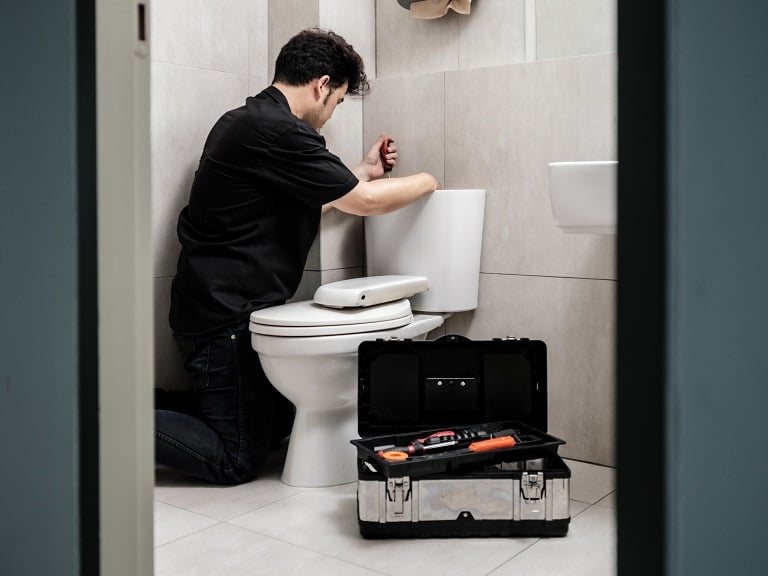
Going from an undeveloped plot to your dream home can be expensive. Learn about the cost to develop land and what factors can affect your total.
Negotiating doesn't have to be scary, especially when you follow these tips


General contractors charge 10% to 20% of the project cost as their fee, resulting in an average cost of $4,000 to hire a general contractor.
If a general contractor charges you daily rates, expect to pay $300 to $500 for each day of work.
Ask contractors if they offer a discount for less busy periods in their schedule.
Getting at least three quotes will help you find the best deal.
Some contractors are willing to negotiate their price, and others won't budge. But how do you negotiate with contractors- and get a better deal? Rest assured, there are some steps you can take to get the best bid on your home project.
Shopping around never hurts and ensures you get a fair assessment of the project's cost before signing a contract. Knowing how to save money on your home improvement projects is always a good idea. That's why it's essential to ask for at least three to four bids before deciding on the price you're willing to pay for the project.
When you gather estimates, you can always negotiate the cost of the project with any contractor. Many general contractors are willing to negotiate their prices and terms if they're competing for a job.
It is helpful to be up-front with contractors and let them know what you expect from the process:
Prepare to answer the contractor’s questions, as this will help craft a more exact estimate
To ensure the accuracy of the bids they provide, only offer contractors as many details about your project as they need
Have a running list of qualified contractors and company numbers ready to go; this will come in handy for future home projects
Before you hire a contractor, it's always a good idea to verify a company’s credentials including licensing, bonding, and insurance. Read reviews, look at their work, and ask for references from past clients.
In some cases, you may find that working with a tradesperson with less experience will be more affordable. Just make sure you're comfortable with their level of experience.
Researching the cost of your materials also helps when negotiating with a contractor. For example, you may notice that your contractor only buys the most expensive lumber rather than a more affordable option.
It's wise to keep a list whenever a contractor gives you estimates on materials necessary to supply the project. You'll then know for sure if they're making exorbitant purchases, and you’ll have leverage during negotiations.

Depending on the season, general contractors may be more willing to negotiate for a lower price. To save money, compare cost estimates from various companies during the slower seasons (winter or summer, depending on your project).
For example, if you live in a colder climate you should wait until the winter to call contractors for estimates.
When hiring a contractor, you may pay for subcontractors or material supplies directly. Most contractors offer to purchase the supplies you need for the project and include their cost estimate in the contract or bill you for them later. The contractor usually already has a supplier they like, so prices can be high due to convenience.
One way to successfully negotiate with general contractors is to focus on the supplies required for a project. Offer to buy these materials yourself. Just remember to double check the quantities in advance with your contractor so you don't run out mid-project.
You should always be polite when trying to negotiate a contract, but don’t be afraid to speak confidently. The tone of your voice can help persuade someone to agree with you, so make sure it's not too aggressive or passive—even if you're frustrated.
You want them to respect your authority in this situation. It will make it easier for the contractor to come down in price.
Tell the contractor what you need from them. Then ask them to give their best possible estimate, and they'll know how much work is involved before providing an answer.
Explain in detail the timeframe for your repair. Very few general contractors will quote you a price more than three months out. But if you're looking to close within a couple of weeks, then mention that to avoid any delays. Let them know they're not your only option, either, by telling them you're collecting a few other quotes.
Ask when the contractor is available and how long it’ll take to complete the work. As you talk to each contractor, ask questions about the job requirements and take notes. Knowing what you need helps you find a match for your home repair needs.
Don't approach the pricing situation as if the contractor is against you. Otherwise, it will reflect negatively on your relationship with them. Instead, treat the contractor as your ally in finding a lower price for your home improvement project.
Show them you respect their professional authority by asking for any changes you could make to the project to help save money. For example, they might be able to make some substitutions, such as using more affordable materials.
Learning how to negotiate with contractors takes time and compromise. You may need to walk away and potentially come back. Get free estimates from other contractors that are slightly lower than the current bid you're considering.
This information may make your general contractor reconsider and propose a more competitive offer. Or, it could leave them with no option but to lower their price.
The average cost to hire a general contractor is $4,000, but this figure varies widely based on the type and scope of the project. Extensive projects requiring multiple workers cost more than quick projects one person can complete. Instead, a more accurate way to estimate the hiring cost is based on a percentage of the overall project cost.
General contractors typically charge customers 10% to 20% of the cost of a project. For example, if it costs $20,000 to remodel a kitchen, a contractor will likely charge between $2,000 and $4,000 for the job. Some contractors operate on a per-day basis, with an average rate between $300 and $500 per day.
It’s worth hiring a local contractor for projects that are time-consuming, complicated, or dangerous to do yourself. This includes anything from fence installation to home renovation. However, you may prefer to hire a handyperson for small tasks like installing a light fixture or fixing a leak. General contractors have the licensure and experience to handle large-scale projects, but a handyperson can complete simple household projects at a cheaper rate.
From average costs to expert advice, get all the answers you need to get your job done.

Going from an undeveloped plot to your dream home can be expensive. Learn about the cost to develop land and what factors can affect your total.

Use our guide to calculate the cost to install a stair lift in your home. Prices depend on the type of stair lift, including the seat style and other advanced features.

Curious how much general contractors charge per hour? Discover hourly rates, key cost factors, and tips to save on your next home project.

If a disappearing contractor left you without your deposit and services, here are the actions to take to remediate the project and get your money back.

Curved staircase chair lifts can enhance your home’s safety and accessibility. Use this guide to learn how much they cost to install based on factors like staircase size and lift type.

Learn what’s possible and what your options might be when considering ways of raising the ceiling height in a room or your entire house.